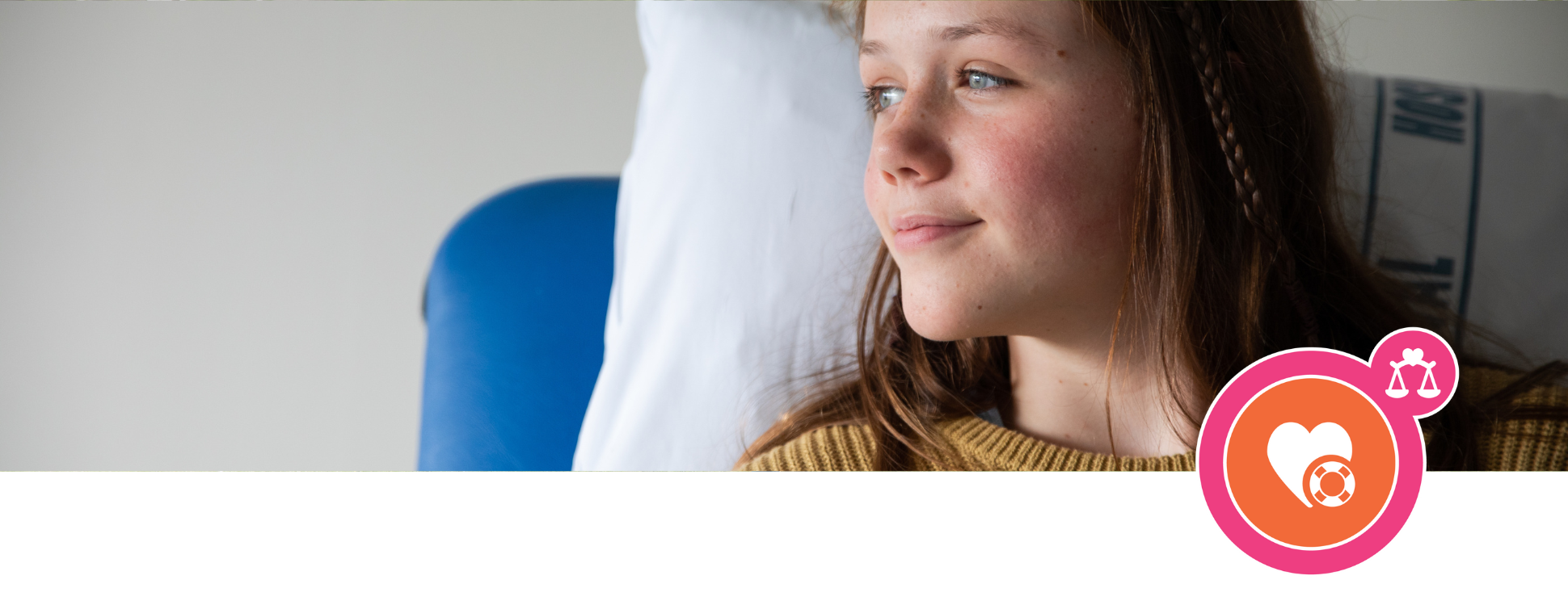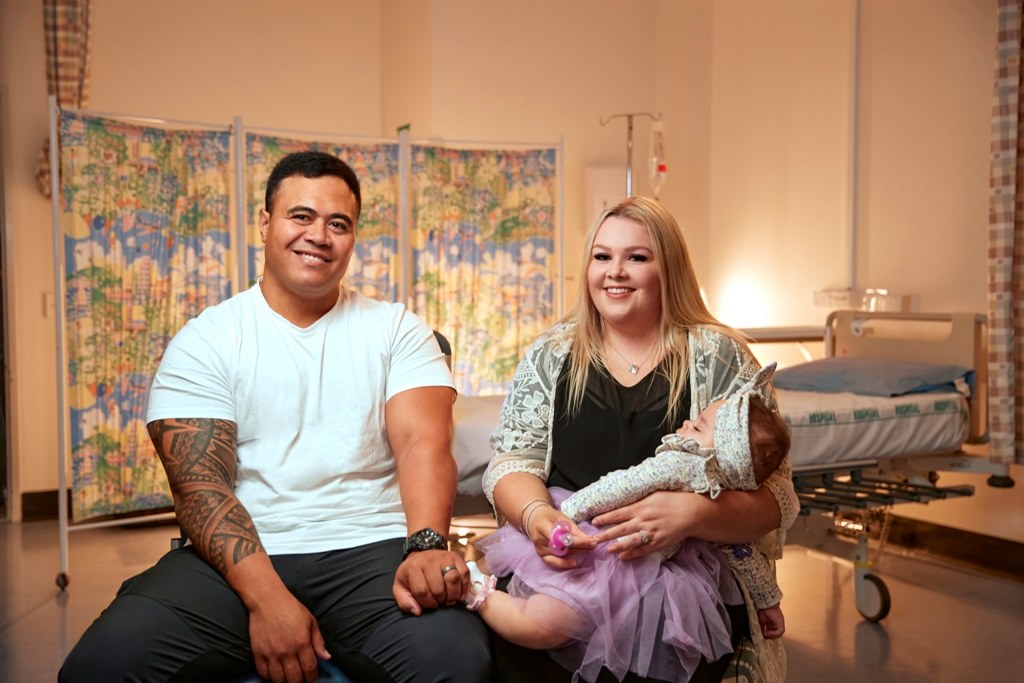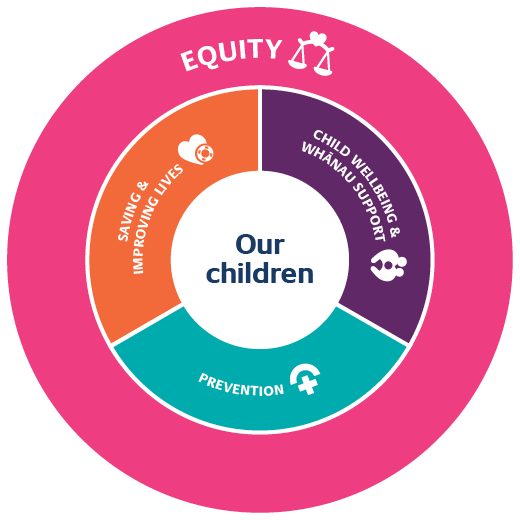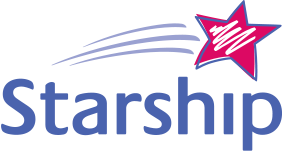Saving & Improving Lives
Better outcomes for our children
We help Starship keep pace with the latest technology and treatments, attracting and retaining the best and brightest staff. That gives our children the best chance to get back to better health

As New Zealand’s national children’s hospital, one of Starship’s most important roles is to save and improve the lives of seriously ill or injured children from across the country.
From January 2021 to June 2022, supporters like you helped us do exactly that.
In April 2021, we embarked on a mission to upgrade and expand New Zealand’s only dedicated Paediatric Intensive Care Unit (PICU) at Starship. Thanks to your compassion and generosity, we’ve started the first phase of this significant expansion project.
By the time the project is complete, Starship will have increased PICU capacity by 45%. We’ll also have ensured we can continue offering the best possible care and support for critically ill children and their families, from across Aotearoa New Zealand .
The completed PICU expansion will include 10 new beds, new whānau and staff spaces, and a Medical Day Stay Unit.
The Starship National Air Ambulance flies the length and breadth of the country funded by generous supporters including ongoing backing from the Lindsay Foundation. 175 retrievals took place in 2021 connecting seriously ill and injured children with the specialist paediatric intensive care team at our national children’s hospital.
Thanks to generous Starship supporters like you, we were also able to fund a wide range of equipment in Starship’s Neonatal Intensive Care Unit (NICU). NICU is where sick or premature infants are nursed through to better health. Thanks to your ongoing generosity, those babies and the staff who care for them have access to cutting edge, life-saving equipment.
You’ve also helped us fund a range of different research projects, supporting Starship’s best and brightest staff to further build their expertise to deliver even better outcomes for our children. 2021’s research fellows investigated health interventions for premature babies, surgical pathways for children with a rare heart condition, and developmental paediatrics.
NICU equipment includes 40 milk warmers, a neurodiagnostic system, 3 resuscitation carts, and 2 heat tables
And with help from a Starship supporter leaving a generous gift in their will, the Starship Foundation purchased a permanent facility to foster innovation and clinical excellence. This new space will include a clinical research hub, spaces for telehealth sessions, and training and meeting spaces for various Starship teams
53 Starship Research Fellowships funded since the initiative started in 2005 including four in 2021
Other projects you funded included a state-of-the art surgical camera and video apparatus for our Ear, Nose and Throat Clinic, a cutting-edge injection system for our MRI imaging team, and Aeronox breathing support for premature babies and children struggling to breathe.
None of these amazing projects would be possible without the kind support of donors like you. Thank you sincerely for helping Starship be there for our children and families when they need us most.
Helping give certainty to families affected by a rare heart condition
When mum Nadia, dad Leith, and sister Caitlin took baby Eloise (‘Ellie’) home, they hoped it was the start of a regular life for their family of four.
A shock diagnosis changed everything. “Ellie was falling into that category of ‘failure to thrive’. A determined midwife sent us off to our local hospital…it all got very serious, very quick,” says Nadia.
Ellie was diagnosed with Tetralogy of Fallot (ToF), a heart condition requiring numerous surgeries before age two. For the family, the first few years of Ellie’s life were a blur of hospital admissions and ongoing uncertainty
Thank you for recognising the importance of child health research and believing in clinicians like myself.” Dr Zoe Vetten
Dr Zoe Vetten’s research aims to change all that. By analysing pre-natal scans of children with ToF from across Australasia, Zoe and the Starship Cardiology team hope to help identify which children will need surgery within their first 30 days.
In doing so, the Cardiology team hopes to give families like Ellie’s from across New Zealand a sense of certainty. If a family knows their child’s likely treatment pathway, they can make plans ahead of time and minimise disruption to their lives. For some whānau, it may prevent an unnecessary early trip to Auckland. Others may have the chance to prepare themselves for surgery ahead of time.
Thank you for helping clinicians like Zoe learn how to give families like Ellie’s predictability and certainty in their hour of need.
The best possible intensive care for children with Sophia
Through 2021, we asked New Zealanders like you to help us raise $15 million to expand and upgrade New Zealand’s only dedicated children’s intensive care unit. At the project’s inception, PICU was operating at critical capacity every 48 hours.
You responded generously, helping us get the expansion underway as planned. The PICU expansion will open in stages with the first clinical space opening in late 2022. Construction of the whānau rooms, staff facilities, educational areas, public spaces and our new Athlae Lyon Medical Day Stay Unit will begin soon. It’s children like Sophia, and their families, who will benefit.
“Our whole world was turned upside down,” says mum Brooke. Sophia was rushed to PICU shortly after birth, and was diagnosed with a rare liver condition called Propionic Acidemia. She required life-saving care in PICU, and another stint after receiving a liver transplant at nine months old.

“Our goal is to make what is otherwise an unbearable time, just that little bit more bearable,” says Clinical Director Dr John Beca.
Thanks to support from generous Starship donors like you, an upgraded PICU can cater for admissions growth over the next decade and beyond.
You can find out more about your impact at the links below or read the complete 2021/2022 Starship Foundation Impact Report
Previous Starship Foundation Impact Reports can be found here.

